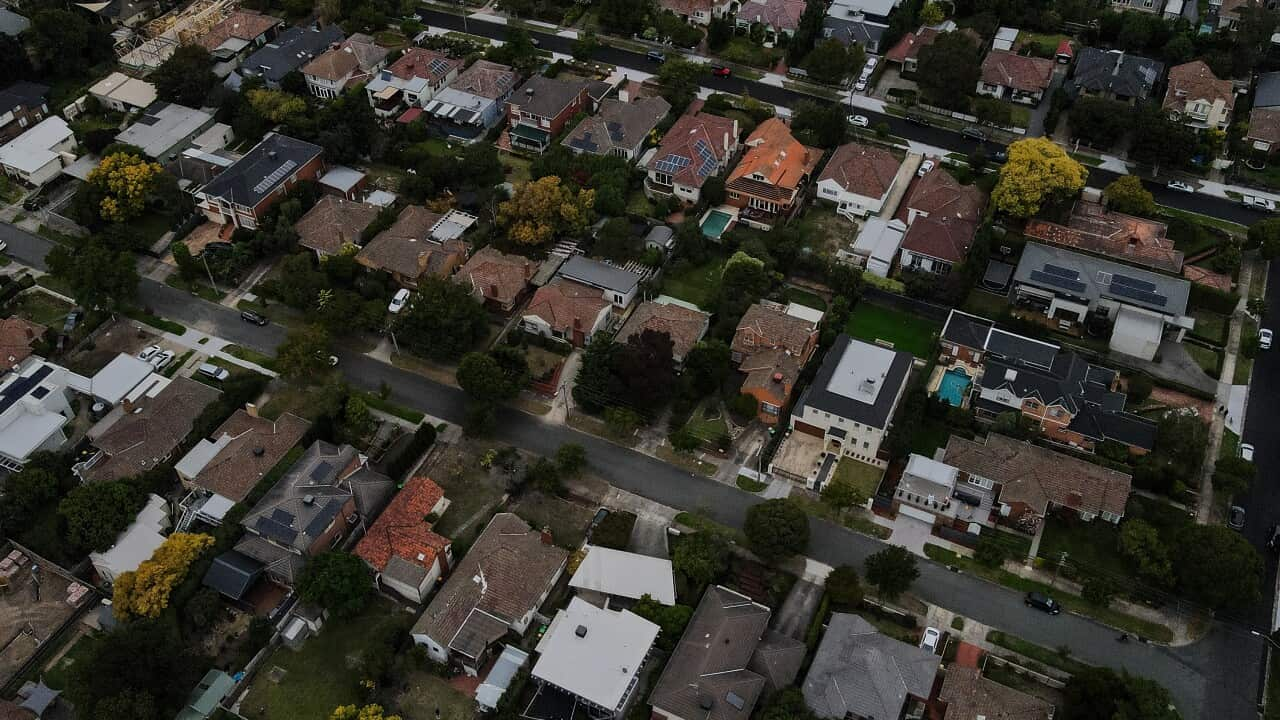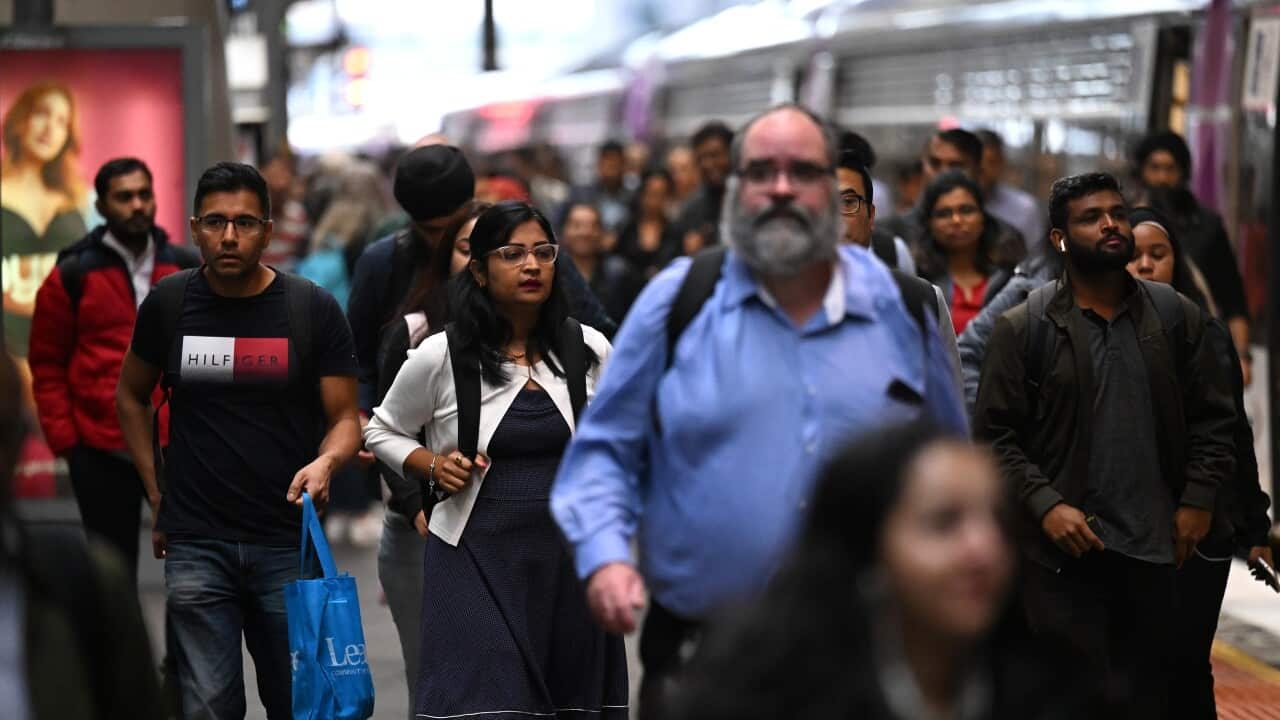Key Points
- The Business Council of Australia has released a report making 29 recommendations to solve the housing crisis.
- A $10 billion national fund to incentivise states to fix regulation and planning bottlenecks is one suggestion.
- Skilled migration and trained workers are also needed to address crippling industry shortages, the peak body says.
Rezone more land, speed up approvals and streamline accreditation for tradies: these are the measures the business lobby says will unlock more housing and improve affordability.
A national fund to prop up new builds, constructing more infrastructure and addressing labour and materials shortages are also among measures outlined by the Business Council of Australia (BCA) for the federal government to meet .
For Australia to reach the target of 1.2 million new homes by the end of the decade, around 60,000 extra homes need to be built each year, the council said.
"Australia has a housing supply crisis and we need urgent action from all levels of government to fix it," BCA chief executive Bran Black said while launching the group's housing report.
"We want the federal government to create a new national reform fund, like the one created in the 1990s, that incentivises states to fix regulation and planning bottlenecks that hold back homes being built."
The BCA estimates at least $10 billion would need to be committed to the fund to drive urgent reform.
Skilled migration and trained workers are also needed to address crippling shortages in the industry, Black said.
Federal Opposition housing spokesperson Michael Sukkar said the Coalition supported some parts of the plan but had "reservations" about other aspects.
Asked if he supported the call for more foreign workers, Sukkar said: "You've got to reorientate the composition of who you bring in."

Skilled migration and trained workers are needed to address crippling shortages in the construction industry. Source: AAP / Dean Lewins
"Now you can simultaneously ensure that of the generous migration program that Australia does have in place, that you reorientate it to the sorts of skills we need."
One way to boost tradies would be to harmonise licensing and accreditation across states and territories, Black said, so those registered in one state could work in others.
Coalition unveils $5 billion housing plan
The BCA'S wishlist of 29 recommendations follows to build enabling infrastructure such as water and sewerage to get projects moving, as it takes the fight to Labor over housing policy ahead of the upcoming election.
It has further pledged to cut building red tape under its plan in a move welcomed by business, building and property groups.
Labor says the Coalition's pledge is already part of its housing policy being enacted through its own funds, which have been established to address a shortage of homes.
The party is also chastising both the Opposition and Greens for stalling legislation in parliament that would set up a shared equity scheme allowing some homeowners to enter the market.
The Greens are holding out support for , arguing for for property investors.
Finance Minister Katy Gallagher warned the Greens to work constructively with the government, after .
Being seen to block progress after voters installed them to help address crises in key areas like housing could frustrate the electorate, she warned.
Federal Greens housing spokesperson Max Chandler-Mather maintains that pressure works, after leveraging their balance of power in the Senate to force Labor to invest more in social housing when negotiating previous legislation.
Victoria to slash stamp duty
Every Victorian who buys off-the-plan apartments, units and townhouses will have their stamp duty slashed for a limited time.
Thresholds for stamp duty concessions had previously been set at $750,000 and $550,000 for first home buyers and owner occupiers respectively — but Premier Jacinta Allan announced on Monday they would be expanded to all buyers and uncapped until 21 October 2025.
She received a hostile reception on Sunday when unveiling a plan to create 50 new "activity centres" to help deliver more than 30,000 additional homes across Melbourne by 2051.
Allan said the dwellings would be a mixture of townhouses and apartments centred on 50 high-frequency train stations and tram stops, some in Melbourne's leafiest and most expensive areas such as Toorak, Armadale and Brighton.
Other suburbs include Murrumbeena, Oakleigh, Hawthorn, Blackburn, Mitcham and West Footscray.
Brighton residents, angered by the planning takeover paving the way for taller buildings, surrounded the hotel where the premier announced the plan, chanting "shame premier shame".
Victorian Opposition leader John Pesutto criticised the Allan government for not consulting with local residents and unveiling the plan during the caretaker period for local governments ahead of council elections.











